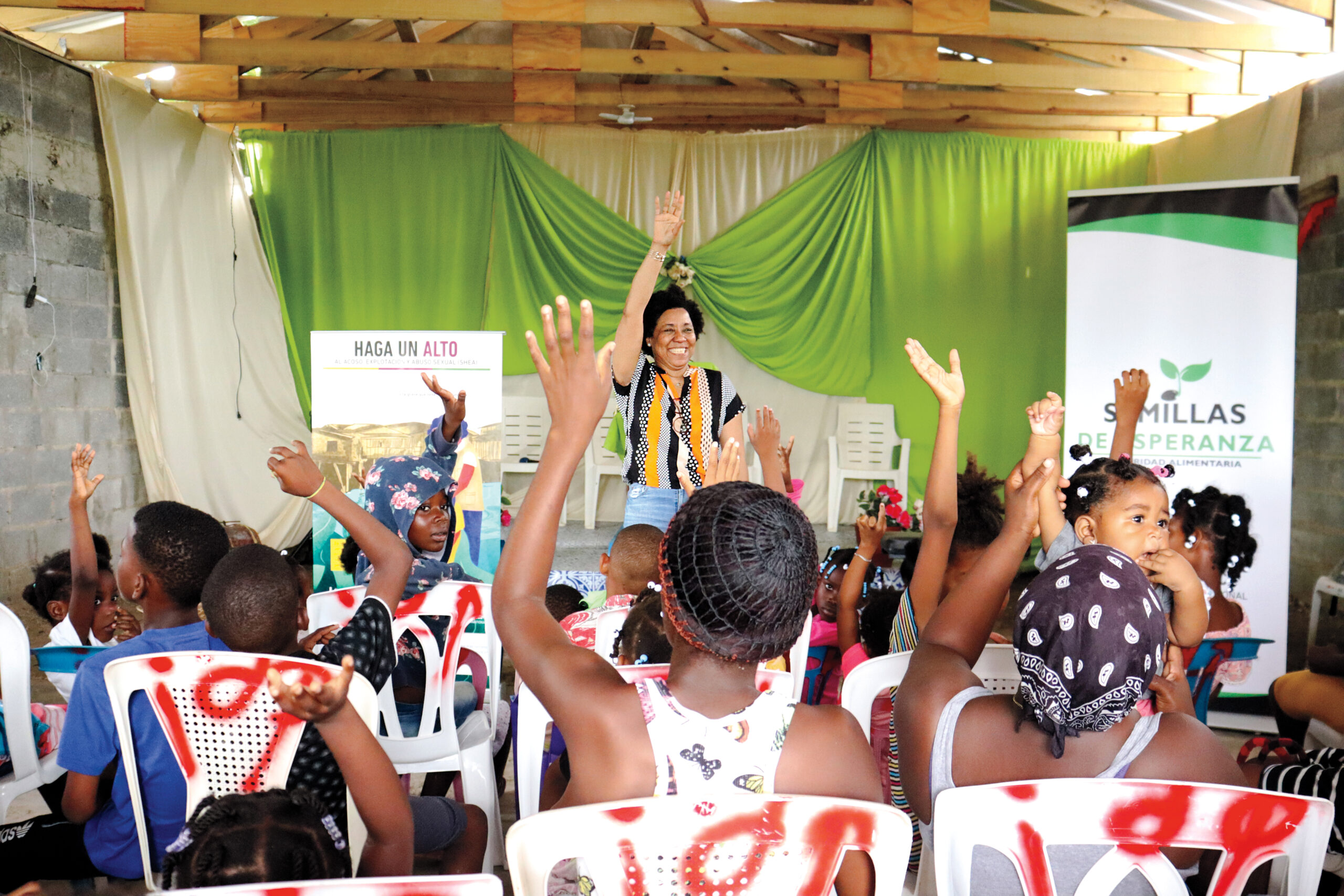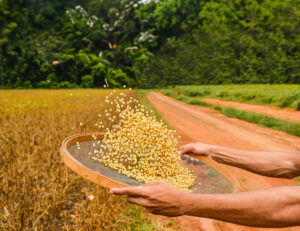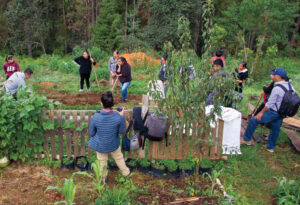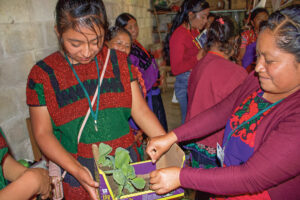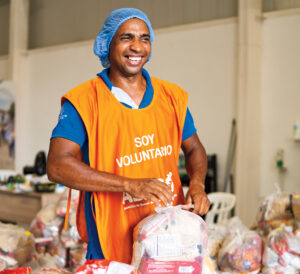This article is adapted from AQ’s special report on food security in Latin America. To see other organizations working on this issue, click here.

The Dominican Republic’s sprawling sugarcane worker settlements, called bateyes, are home to over 200,000 people, though the figure may be far higher. They are so remote and marginalized that the true number is unknown.
They are also vital for the sugar industry—long a pillar of the national economy—but beset by high rates of poverty, with scant access to adequate nutrition or basic services. Most residents are Haitian or the Dominican-born children of Haitian migrants without legal status in the DR. Many of them work in the cane fields, where pay is low and labor violations are common.
“They produce something that is so vital for the world, but they’re not receiving basic rights,” said Carolina Zapata, the DR country representative of the Heartland Alliance International (HAI). The Heartland Alliance, founded in Chicago in 1888 as an anti-poverty NGO, established HAI in 2013 to build on its international work. In the DR, it supports food security in the bateyes—but goes far beyond food to do so.
Within the bateyes, HAI organizes neighborhood cookouts with nutrition workshops and food deliveries alongside the Citi Foundation’s Global Initiative Challenge. At its events, it facilitates community discussions about how to design future HAI programming, from vocational training to know-your-rights classes.
To foster long-term opportunities, HAI focuses on building bridges between the bateyes and the outside world. Whenever possible, it connects residents to legal aid NGOs that help them obtain legal documentation, which in turn allows them to access basic services and travel beyond the confines of the bateyes with less danger of detention and deportation. It also chairs the Civil Society Coalition Against Human Trafficking, composed of 19 civil society groups, that reports abuses and helps victims access psychological support and other services.
To create more of these kinds of connections, HAI hosts a forum every month for representatives from various bateyes—including religious leaders and small business owners—to meet with civil society groups as well as government agencies, which don’t often dialogue with these undocumented communities, Zapata said.
The bridges are only growing. This year, for example, HAI connected women who own small shops in the bateyes with one of the country’s largest grocery chains to help them access seed capital, diversify their merchandise, and ensure their stores are stocked with nutritious food.
Progress is slow but steady as opportunities grow in the bateyes, based on better health and nutrition, rights education, and close attention to local voices.



